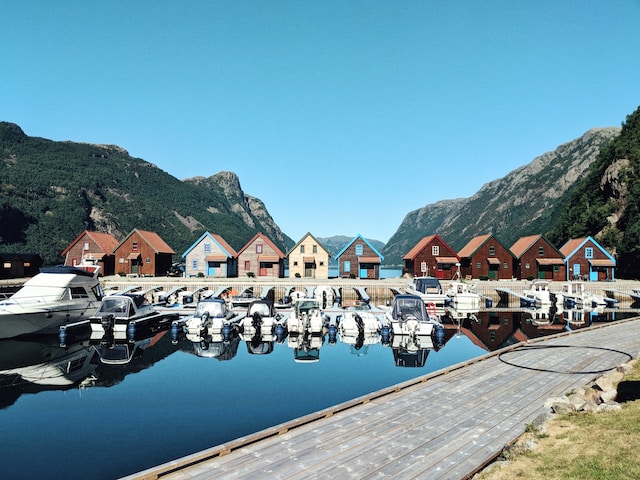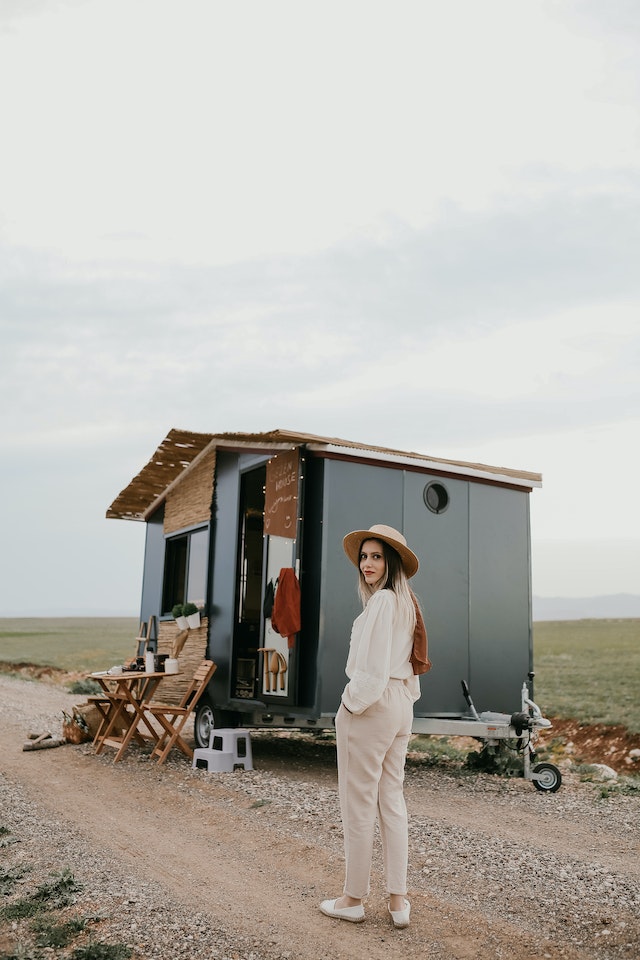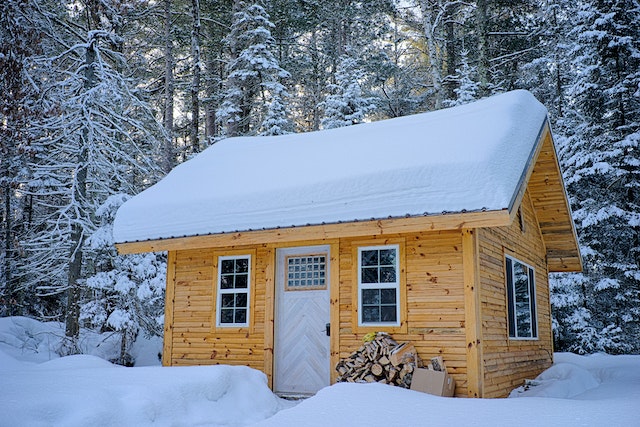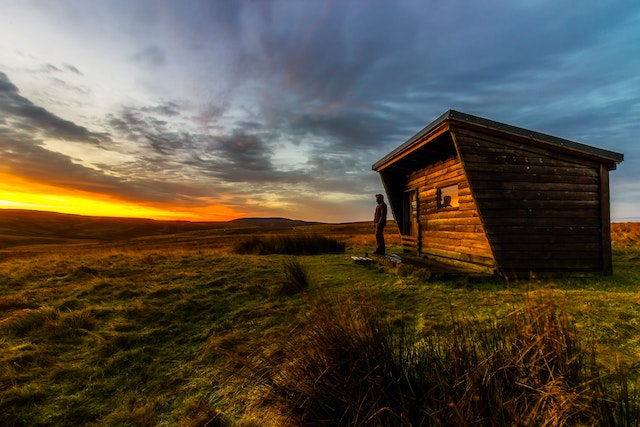
The idea of buying a tiny house may seem a little insane. After all, we’ve been programmed to equate success and happiness with big houses and sprawling lawns. But as more and more people begin to embrace the tiny house lifestyle, it’s becoming clear that bigger isn’t always better.
Buying a tiny house is a significant lifestyle choice, one that requires careful consideration and planning. But with the right preparation and mindset, the rewards can be immeasurable.
Benefits and Considerations of Buying a Tiny House
If you are considering buying a tiny house, congratulations, you are choosing a sustainable and minimalist lifestyle! A tiny house is typically less than 400 square feet and offers a variety of benefits. However, before making the decision, it’s important to consider all factors.
Benefits of Buying a Tiny House
Cost-Effective: The affordability of tiny houses is one of the biggest benefits. Tiny houses are much less expensive than traditional houses. You can expect to save money on taxes, insurance, and utilities.
Low Maintenance: Living in a tiny house means low maintenance. The smaller size means fewer repairs, less maintenance, and less cleaning.
Eco-Friendly: Tiny houses are environmentally friendly, and you will have a smaller carbon footprint. You can also use sustainable materials in your tiny house build, or even consider using solar panels.
Mobility: Some tiny houses are built on wheels, making them mobile and allowing you the freedom to travel wherever you want.
Minimalist Lifestyle: Living in a tiny house forces you to declutter, and adopt a minimalist lifestyle. You will own fewer possessions, and live a simpler life with fewer distractions.
Considerations of Buying a Tiny House

Living in a tiny house certainly has its perks, but it’s important to acknowledge the unique challenges that come with this lifestyle. From limited space to potential zoning restrictions, navigating these obstacles requires careful consideration. Understanding these aspects helps you be better prepared to make an informed decision and embrace the full reality of tiny house living.
Limited Space: The limited space in a tiny house can be challenging for some people. You’ll need to be willing to give up some luxuries and adjust to a smaller living space.
Zoning Laws and Regulations: Some cities and towns have zoning regulations for tiny houses, and you’ll need to apply for permits.
Resale Value: Tiny houses aren’t as popular as traditional homes, and reselling can be difficult.
Privacy: Living in a tiny house might not offer the same level of privacy as traditional homes.
Storage Space: Storage is limited in a tiny house, and you’ll need to be creative in how you store your belongings.
Factors to Consider Before Buying a Tiny House
Budget: Determine the amount of money you are willing to spend on the tiny house.
Design and Style: Consider the design and style you want for your tiny house, including the number of living areas, the type of roof, the type of walls, and the materials.
Utilities: Determine how you will handle utilities such as water, electricity, and wastewater.
Location: Decide on where you want to place your tiny house, and research the zoning laws and permits in that area.
Builder: Finding a reputable builder is essential, research options and check references.
Lifestyle: Consider your current lifestyle and if it would be suitable for living in a tiny house in the long term.
Researching and Finding Tiny Houses
Before buying a tiny house, thorough research and planning are crucial to ensure that you get the home of your dreams. In this section, we will explore the various ways you can research and find tiny houses, including online resources and platforms, working with builders and designers, considering pre-owned versus custom-built options, visiting and inspecting potential tiny house options, and more.
Online Resources and Platforms
The internet is a great resource for finding tiny houses for sale. Some popular platforms for tiny house listings include Tiny House Marketplace, TinyHouseListings.com, and Tiny House Finder. These platforms allow you to search for tiny houses based on location, size, and price range, making it easier to find the perfect tiny house for your needs.

Work with Builders and Designers
Another way to find a tiny house is to work directly with builders and designers. Many companies specialize in building and designing custom tiny houses, and they can work with you to create a home that meets your specific needs and preferences. Some reputable tiny house builders and designers include Tumbleweed Tiny House Company, Escape Homes, and Tiny Homes of Maine.
Consider Pre-owned versus Custom-built Options
When searching for a tiny house, you may come across pre-owned options for sale. While these homes may be more affordable than custom-built options, it’s important to inspect the home thoroughly before making a purchase. Pre-owned tiny houses may have hidden issues that need to be addressed, such as leaks or damaged appliances.
Visiting and Inspecting Potential Tiny House Options
When you find a tiny house that you’re interested in, it’s important to visit and inspect the home in person. This allows you to get a better feel for the home’s size, layout, and overall condition. During your visit, make sure to ask the owner or builder any questions you may have and inspect the home’s plumbing, electrical, and heating systems.
Evaluating Tiny House Features
When considering buying a tiny house, evaluating its features is crucial to ensure that the home fits your needs and is built to your standards. Below are the most important features to consider when evaluating a tiny house.
- Size
The size of a tiny house is one of the most important features to consider when evaluating it. Tiny houses can range from 100 square feet to 400 square feet, and it’s essential to find one that fits your needs. A smaller home may save money, but it can also restrict your lifestyle. A larger home can provide more space but comes with higher costs.

- Layout
It’s important to consider the layout when evaluating a tiny house. The layout affects the flow and functionality of your home. The layout should match your needs, and the space should be used efficiently. Look for a layout that makes the most of the available space and offers plenty of storage.
- Storage Space
Storage space is crucial in tiny houses. Look for a tiny house that offers creative storage solutions to maximize the space. Check if there is enough room to store your belongings, including clothes, kitchenware, and furniture.
- Kitchen and Appliances
The kitchen is a focal point of any home, especially in a tiny house. Evaluate the kitchen to see if it meets your requirements. Check if there is enough counter space, appliances, and storage for your cooking needs. If appliances are included, such as a refrigerator, make sure they are the right size and energy-efficient.
- Bathroom
Tiny house bathrooms are typically small, but they can still offer all the necessary amenities. Evaluate the bathroom to see if it meets your needs. Check if there is enough space to move around and if the fixtures and plumbing are of good quality.
- Materials
The materials used in building a tiny house affect its durability, longevity, and sustainability. Evaluate the materials used in the construction, including insulation, flooring, roofing, and siding. Look for materials that are eco-friendly and that can withstand the environment the home will be placed in.
- Energy-Efficiency
Tiny houses typically consume less energy than traditional homes. Consider the energy-saving features of the tiny house, such as solar panels, wind turbines, or a composting toilet. Inspect the windows, doors, and insulation for energy efficiency.
Understanding Legal and Zoning Requirements
Before buying a tiny house, it’s crucial to understand the legal and zoning requirements in the area you plan to place your home. Below are the most important factors to consider regarding legal and zoning requirements.

- Research Zoning Laws and Codes: Some cities and towns have zoning regulations for tiny houses, and it’s essential to research them before buying a tiny house. Determine if the zoning laws and codes in your area permit tiny houses, and if so, what the requirements and restrictions are for their size, location, and foundation.
- Obtaining Permits: In addition to zoning laws and codes, you will need to obtain the appropriate permits before placing your tiny house. The permits required will vary depending on the area and the size and type of the home. The most common permits required for tiny houses are zoning permits, building permits, and land-use permits.
- Working with a Professional: Working with a professional who is knowledgeable about zoning laws and building codes can make the process of obtaining permits easier and more manageable. Consider hiring an architect or a builder who specializes in tiny houses and can guide you through the zoning and permitting process.
- Consider Insurance: Insurance is another essential factor to consider when buying a tiny house. It’s important to have homeowners’ or renters’ insurance to protect your investment and personal property. However, obtaining insurance for a tiny house can be challenging as they are not considered traditional homes by insurance companies. Consider working with an insurance agent who specializes in tiny houses to find the right insurance coverage for your home.
- Finance and Taxes: Obtaining financing for a tiny house can be challenging, as they are not considered traditional homes by many lenders. Consider alternative financing options such as personal loans or peer-to-peer lending. It’s also crucial to understand the tax implications of owning a tiny house, including property taxes and state and local sales taxes.
Making the Purchase of a Tiny House
Once you have evaluated your needs, researched your location, and found the tiny house of your dreams, it’s time to make the purchase. Below is a guide to help you navigate through the purchasing process.
- Build vs. Buy
Decide whether to build your tiny house from scratch or to buy a pre-built tiny house. If you choose to build, figure out if you will hire a contractor or build your tiny house yourself. Building a tiny house from scratch can save you money, but it requires a significant amount of time and effort. Buying a pre-built tiny house can save time and effort, but it could be more expensive.
- Financing
If you need financing, research different options, such as personal loans, RV loans, or home equity loans. You may need to provide a down payment, so be sure to save for this expense.
- Closing the Deal
Once you’ve decided to make the purchase, you will need to sign a contract and provide a down payment. The contract will include essential details such as the purchase price, financing terms, and estimated delivery date.
- Delivery and Installation
If you opted for a pre-built tiny house, it will be delivered to your specified location. If you built it yourself, you will need to arrange for delivery or transport to your desired location. Once the tiny house is delivered, you will need to install utilities and make any necessary final touches.
- Insurance
It’s important to obtain insurance for your tiny house to protect your investment and personal belongings. Research your options and find an insurance company that specializes in tiny houses.
- Living in Your Tiny House
Once the tiny house is complete, it’s time to enjoy your new home! Keep in mind that living in a tiny house requires a lifestyle change, and it may take time to adjust to the limited space and minimalist lifestyle.
Buying a tiny house requires careful consideration and planning. Research is essential to ensure that you find a tiny house that meets your needs and is legally permitted in your area. When making the purchase, consider financing, insurance, and the process for delivery and installation. Once the tiny house is complete, enjoy the rewards of living a sustainable and minimalist lifestyle.
